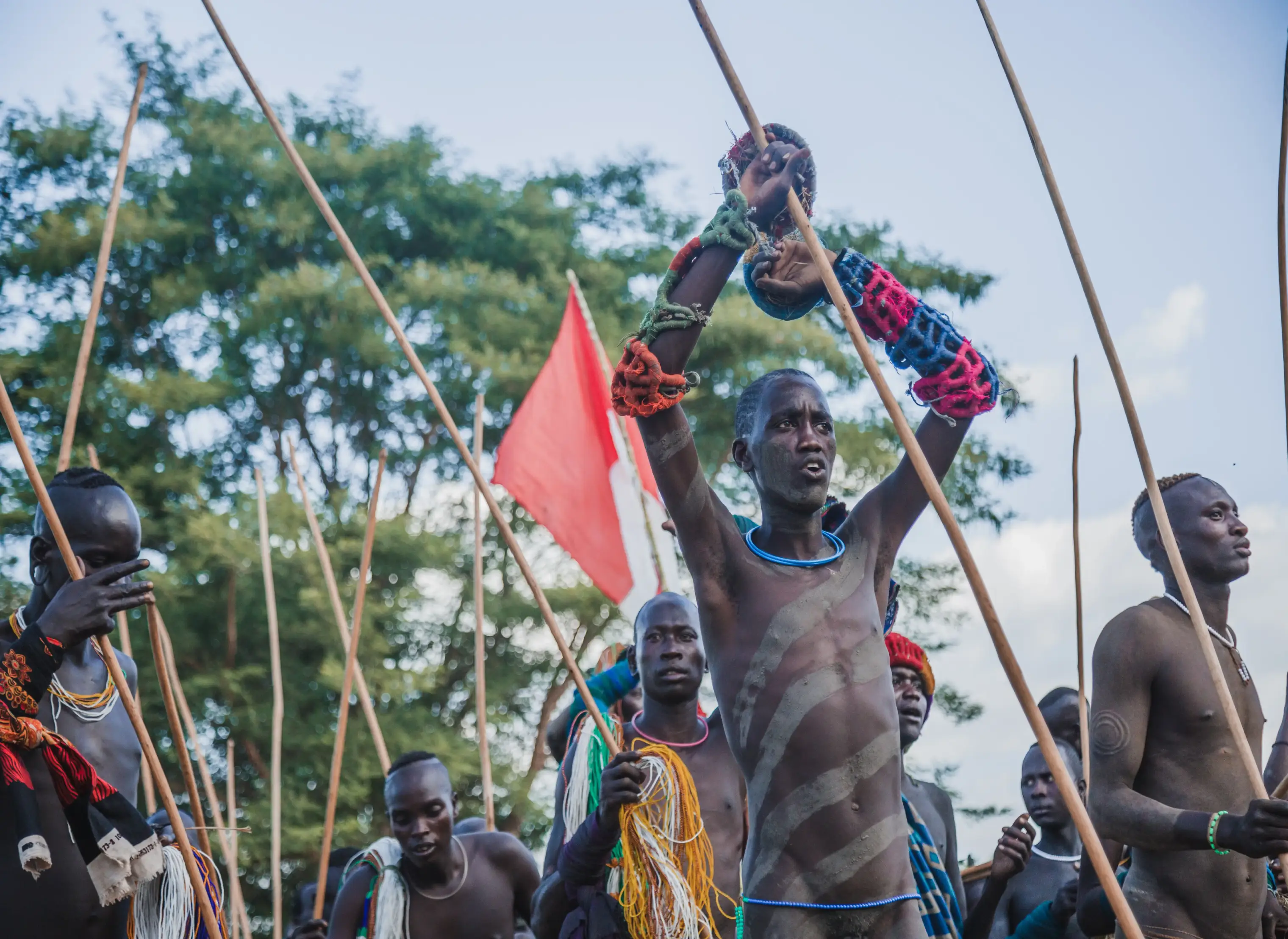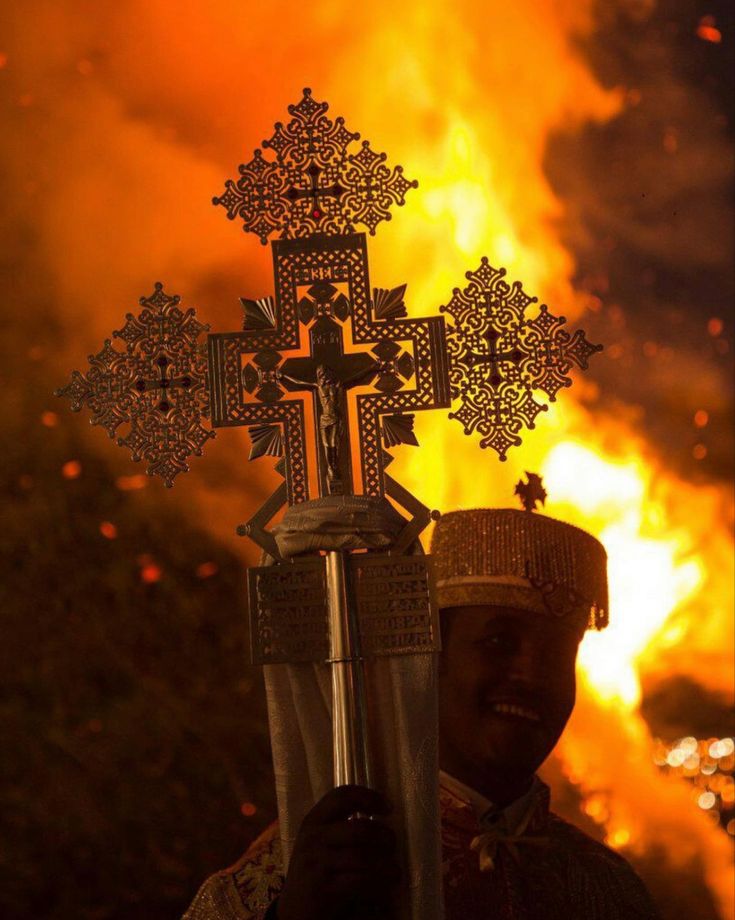

Ethiopian celebrations are vibrant and colorful. Religion is a big element of life in Ethiopia. People dress up in traditional costumes and hold colorful, one-of-a-kind ceremonies to mark festivals around the country. Ethiopian festivities you should not miss if you visit the country.
New Year's Day and St. John the Baptist's Day The day is known as Kiddus Yohanes or Enkutatash, which means "gift of jewels." It commemorates the finding of the True Cross in the early fourth century. Yellow daisy-like flowers (called meskel) blossom all over the hills surrounding Addis Ababa during this season. Christmas is known as "Ledet '' or "Genna," which derives from the term Gennana, which means "imminent" regarding the Lord's advent as well as the liberation of people from sin. Timket is celebrated two weeks after Genna. It commemorates Christ's baptism in the Jordan River by St. John and is considered the most colorful event of the year. Fasika, or Ethiopian Orthodox Christian Easter, is celebrated after a 55-day fast. Hidar Tison is a Mary celebration related to the presence of the Ark of the Covenant in Axum.

Meskel is one of Ethiopian Orthodox believers' most important liturgical holidays, commemorating a fourth-century event in which Empress Helena, mother of Constantine the Great, discovered the True Cross on which Christ was crucified. The lighting of a giant conical bonfire known as a Damera, as well as all the dancing and feasting that surrounds it, is the focal point of this one-of-a-kind event. The largest Meskel gathering takes place at Addis Ababa's Meskel Square, where hundreds of thousands of residents and visitors converge to witness the colorfully clad priests chant, pray, and dance. Meskel is celebrated on the 27th of September.

Timket is celebrated on the 19th of January, the eve being on the 18th of January 19th. This celebration, which commemorates Jesus' baptism in the Jordan by John the Baptist, is the most colorful of the year. The festival is notable because it is the only moment the Tabot - a facsimile of the Ark of the Covenant carrying the Ten Commandments - is removed from churches around the country. Tabots are stored in a tent while priests keep watch all night, lighting candles and oil lights. The majority of followers do not go home and instead spend the night praying, singing, and dancing. The prayers, dancing, and music will continue the next day. The pool or stream is then blessed and sprinkled on believers. Everyone will battle to reach the water and share the blessing. The Tabots are then returned to their respective churches in the same way in which they were brought out, with the exception of St Michael's Tabot, which remains until the next day. Gondar and Addis Abeba are the ideal cities to visit during Timkat.